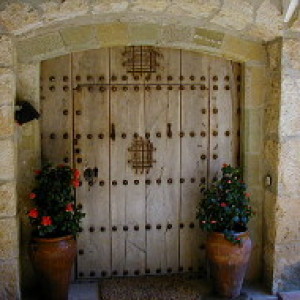Well Blow Me!
I am suffering with the wind. For those of a delicate disposition(self imposed or natural) I should reassure you that that this is a meteorological condition rather than a particular medical malady.
Now I realise that those of you in the UK have had your fair share of weather hazards this year but there is a particular combination of the whim of the Gods and the prevailing breeze that is driving me crackers.
Perhaps it may help if I run through our main blows:
Tramontan: A north or northerly winter wind off the mountains. It is a fresh wind of the fine weather type. Known to drive grown men to drink.
Gregal: The best-known variant of a term for a strong northeast wind in the central and western Mediterranean; it occurs either with high pressure over central Europe or the Balkans and low pressure over Libya, when it may continue for up to 5 days, or with the passage of a depression to the south or southeast, when it lasts only 1 or 2 days; it is most frequent in winter.
Levant: A strong easterly wind of the Mediterranean, attended by cloudy, foggy, and sometimes rainy weather especially in winter.
Xaloc :Catalan language-->Siroco-->, scirocco, jugo or, rarely, siroc is a south easterly Mediterranean wind that comes from the Sahara and reaches gale proportions, but at least it tends to be warm.
Migorn: South wind brings the fresh smell of spring
Garbi: South westerly, since most of the main and largest pig farms are in this direction, you can imagine how welcome this scented breeze is.
Ponent is a warm and dry west wind blowing along the coasts of the north-western Mediterranean. It is the opposite of the Levant (Levanter).
Mistral A cold, dry wind blowing from the north west over the northwest coast of the Mediterranean Sea, particularly over the Gulf of Lions. Also called Cierzo.
At the north eastern fringe of our garden are eight old very tall oak trees, evergreen oak trees actually, south of them is the swimming pool. All through the spring the oaks shed leaves as the new growth emerges, as we get into June catkins appear, like little yellow candlewick bedspreads and the pollen is borne on whichever wind decides to blow, but mostly the northern ones and ends up like a tufted Axminster across the surface of the pool. Dredging it out is just another daily chore.
The combination of leaves and pollen chokes everything, the electric gates get jammed, the pumps choke up, the yellow dust stains every surface and the washing comes in dirtier and dustier than it went out.
This will last until the 2nd week in July or so, when the next natural hazard, in the form of flying biting ants takes its place. No wonder we look forward to August in Scotland and the gentle caress of the midge.
- 0
- 0
- Canon EOS 550D
- 1/100
- f/4.0
- 65mm
- 800

Comments
Sign in or get an account to comment.


